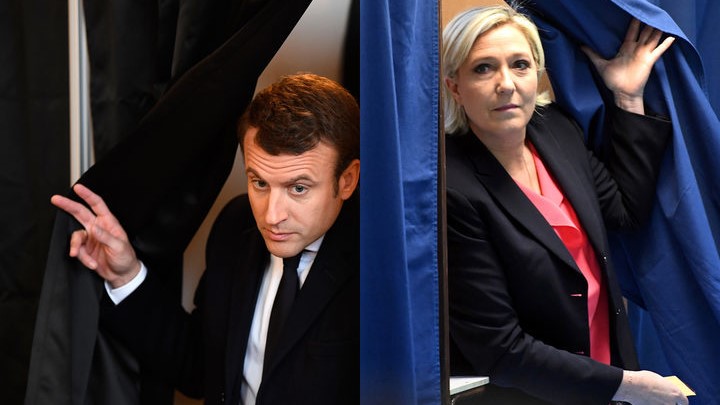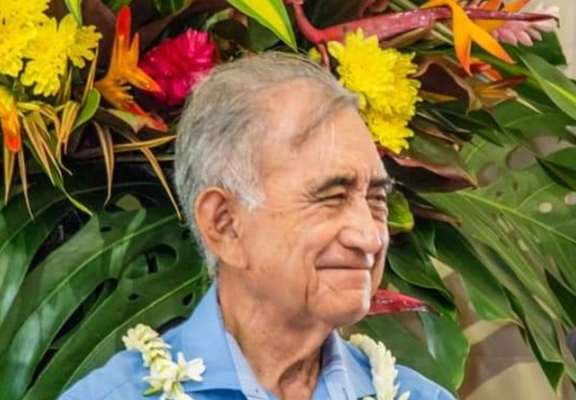Macron and Le Pen top Presidential poll in the Pacific
Monday 11 April 2022 | Written by RNZ | Published in Pacific Islands, Regional

Photo: AFP
In the first round of the French presidential election, France's Pacific territories have chosen the incumbent Emmanuel Macron and the National Rally's Marine Le Pen as the two top contenders.
They will contest a run-off in two weeks in a repeat of the 2017 race. With 96 percent of results from throughout France and the territories counted, Macron had 27.4 percent of the total vote, Marine Le Pen 24.0 percent and Jean-Luc Mélenchon 21.6 percent.
Macron won 41 percent of the vote in New Caledonia, 40 percent in French Polynesia and 39 percent in Wallis and Futuna.
Le Pen won 19 percent of the vote in both New Caledonia and French Polynesia.
In Wallis and Futuna, Le Pen came third with 11 percent of the vote, beaten by the Republicans' Valerie Pecresse, who won 25 percent.
The left-wing candidate Jean-Luc Melenchon came third in both New Caledonia (14%) and French Polynesia (13%).
Turnout was, again, at a record low.
In New Caledonia, only 33 percent voted and in Wallis and Futuna 57 percent.
In French Polynesia, just 31 percent of the electorate voted after a quiet campaign and amid calls by the pro-independence camp to abstain.
Pro-independence leader dismisses candidates
The pro-independence leader Oscar Temaru had said none of the candidates had French Polynesia's interests at heart.

He added that his party's agreement with the Socialist Party of Francois Hollande, who was president between 2012 and 2017, had turned out to be a bad venture because once in power, the French side had failed to deliver on its promises.
None of the latest candidates latched onto his aspirations to heed the United Nations' decolonisation process for the territory, which since 2013 is awaiting acknowledgement and action from Paris.
The rhetoric from Paris has been for the territory's integration into France's geo-political project to for an Indo-Pacific axis to curb China's influence.
French Polynesia's president Edouard Fritch sided with Macron, telling Tahiti Nui TV on polling day that voters needed to ask, "who can we count on tomorrow to save Polynesia?"
"It is necessary to choose the candidate according to his affection, his heart, but also according to the evidence that the candidates can do overseas", he said.
Fritch's ruling Tapura Huiraatira Party had a change of heart for this year's election after backing the Republicans in 2017.
Then, it supported Alain Juppe in the primaries and after his elimination, it backed Francois Fillon, but he failed to make the second round.
This weekend's result also marks a boost for Macron's standing in New Caledonia where five years ago he had been a distant third in the first round.
New Caledonia's voters traditionally supported the Republicans of Jacques Chirac and Nicolas Sarkozy, and in 2017 they did so by voting for Fillon in the first round.
Yesterday, the Republicans' support collapsed, with Pecresse winning just 6 percent of the vote, leaving her in fifth place. She did little better in French Polynesia, winning 8 percent.
Macron's 41 percent share of the vote in New Caledonia followed a sustained campaign by the anti-independence side, which as early as last December began mobilising for his re-election.
After the third referendum on independence showed a majority wishing to stay with France, New Caledonia's anti-independence politicians expressed gratitude to Macron for his 'flawless' support for their cause.
This contrasted with 2017 when Macron dismayed them for having described colonisation as a crime against humanity.














































